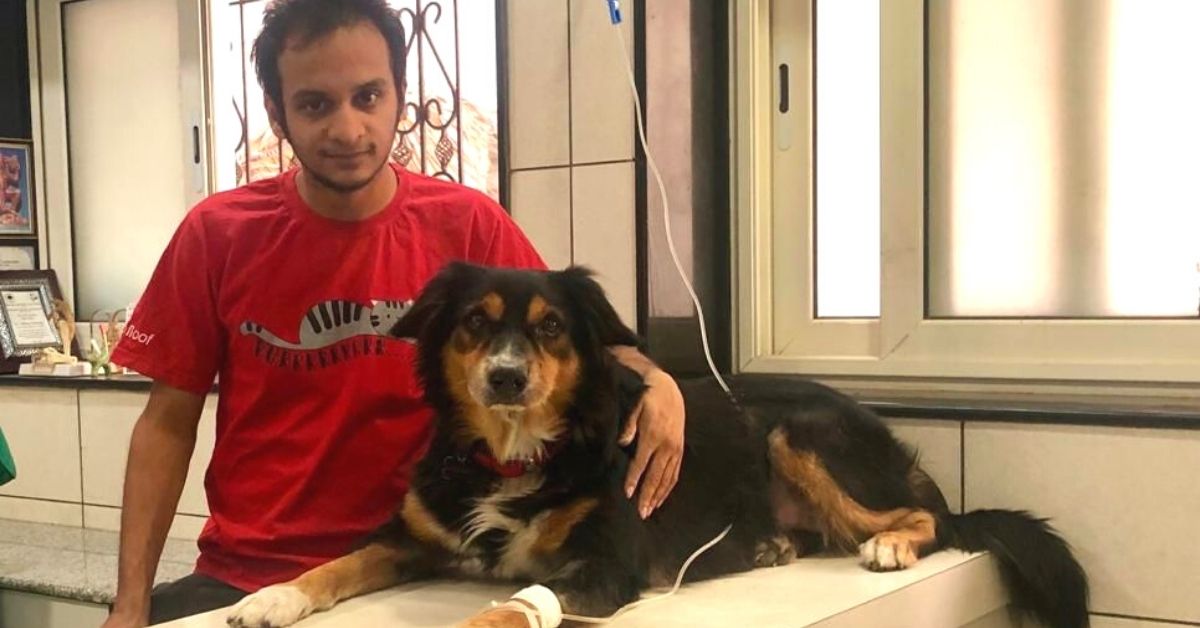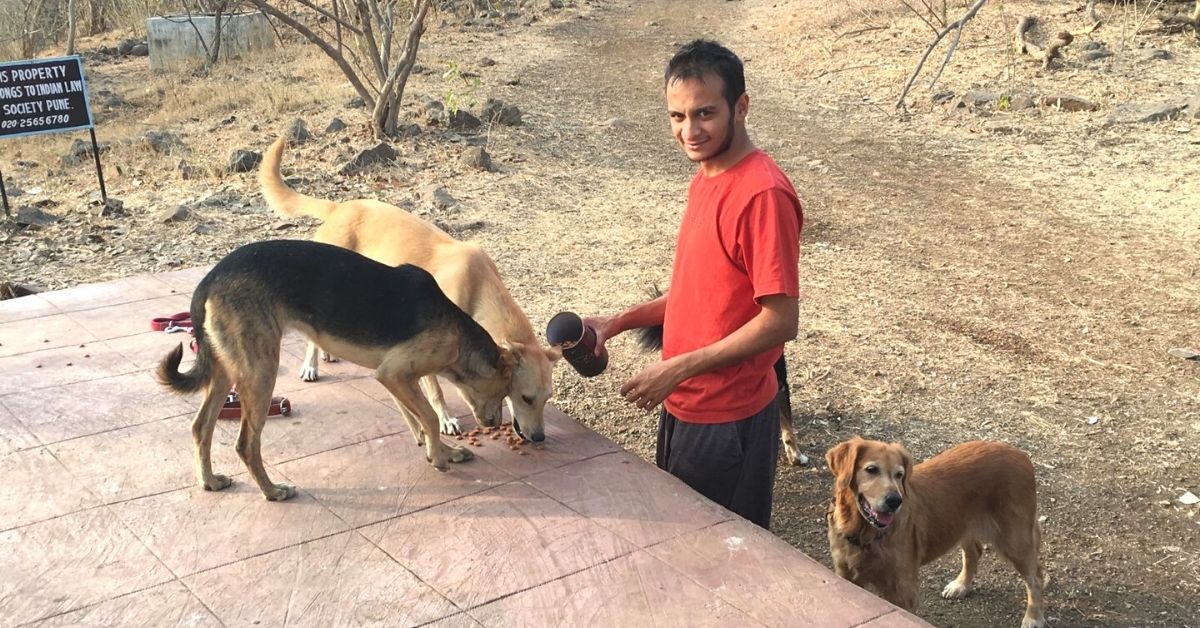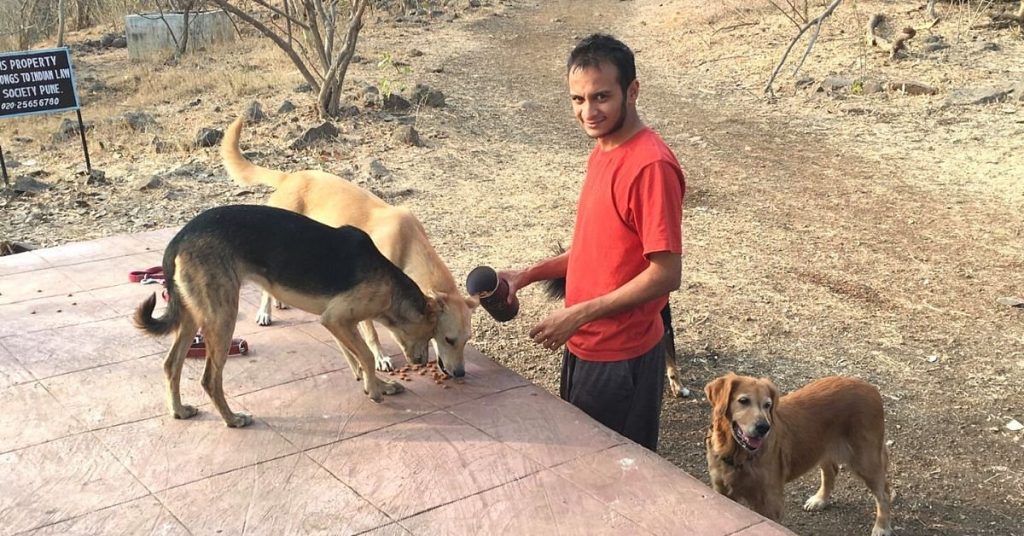In 2007, when Pune-based Kapil Patwardhan was 16 years old, he came across a puppy that was severely dehydrated and without any shelter. When he approached it, Kapil found that it was infested with parasites and needed urgent treatment.
Kapil took the dog into his home, cared for it, and after weeks of treatment and rehabilitation, the pup became part of his family. They named him Caesar.
“This was the first instance where I felt such compassion towards an animal,” Kapil, now 29, recalls to The Better India.
A few weeks after this incident, he rescued another puppy. “She was 20 days old and frail. We nursed her to recovery and found her a permanent home with another family,” he says.
Unable to view the above button? Click here

As incidents of rescuing dogs, and occasionally cats, increased, Kapil decided he wanted to further his reach. So in 2018, he launched Floof, a startup that sells animal merchandise such as t-shirts, mugs and more. All the revenue generated from the sales goes for the welfare of the dogs and cats rescued.
Merchandise for a cause
Kapil and his parents work frequently to rescue dogs and cats and find them shelters or a new home. Around 2013, his father, a captain in the Merchant Navy, came across a startup in Sri Lanka that sold merchandise and spent the profits on the welfare of animals.
“We liked the concept, but did not have any expertise or experience in business,” Kapil says.
Regardless, Kapil took the plunge and launched Floof in August 2018. To kickstart the business, he purchased cloth and other required material, but later outsourced the work. “It helped maintain the quality of products and we could pay more attention to rescuing animals,” he says.
Kapil says the merchandise has helped fund about 50 local volunteers and 10 NGOs, as well as free-range animals. “The aim was to build a community that would come together and work for animal welfare,” he says.
Initially, Kapil worked on social media presence and created an Instagram community. “The first six months were terrible, as I lost a lot of money building the website and creating products. However, in 2019, I decided to participate in a pet festival held in Mumbai to spread the word about the brand,” he says, adding that it turned out to be a game-changer.
“I was not competing with big brands that focussed on pet products that addressed the animals’ diet, health and other needs. My products were aimed at the pet owner, who would wear merchandise to express their love for their furry friends,” he explains.
With new-found confidence, Kapil started attending more events. “Young people appreciated the products as they felt it supported the cause of animal welfare and raising awareness,” he says.
He began selling customised t-shirts and displaying prints at vet clinics. From fetching about seven orders a month, the sales grew to 40 over the next few months.
Today, Floof earns him Rs 7 lakh a year, of which 90 per cent of the profits are spent on rescuing and adopting dogs and cats, he says. The remaining amount is invested into scaling up the business by aiding volunteers.
‘A need for more compassion’
“I send money to folks in Mumbai, Delhi, Bengaluru and other parts of the country wherever there’s an emergency. In many instances, treating a dog or even feeding an animal may require huge funds, which young volunteers might not always have. I support them when money becomes an obstacle,” he says.

Kapil says he feels blessed to have his business funded by his brother during the initial days. “It was a less-ventured area, and I did make mistakes along the way. But my parents and brother supported me throughout the journey,” he adds.
In the future, he aims to start a shelter home that can house dogs and cats while also serving as a merchandise shop.
He notes, “The COVID-19 lockdown has made everyone vulnerable, and humans have become more self-centred, catering to their own needs. But animals have equally suffered and now need compassion more than ever.”
Kapil notes that he does not have any monetary targets or the number of dogs he wishes to rescue a specific number of years. “When I first rescued the pup at 16, I watched how happy our home had become. The same happiness can be seen in the homes that have adopted dogs from me. I have observed that people tend to become more caring towards others, and gain a sense of responsibility when they adopt. This is my only inspiration to continue running my business,” he says.
Edited by Divya Sethu

